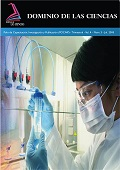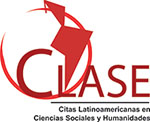The effects of the TPRS Method on the Students’ English Vocabulary Acquisition
DOI:
https://doi.org/10.23857/dc.v4i3.809Palabras clave:
Teaching, Learning, Vocabulary, English, Reading.Resumen
The present study investigates the effects the method of teaching language through reading and storytelling (TPRS) in the acquisition of English vocabulary has in second level students in the Catholic University of Cuenca, extension Cañar; and the perceptions that students have when they are taught through this method. The teaching of language through reading and storytelling is a method that uses different resources for language teaching, providing comprehensible input information in imaginary or real situations derived from students' social context and their cognitive and affective needs. 56 students of the second level of the aforementioned university were randomly selected. A group of 30 students formed the experimental group and 26 students the control group. The data was obtained through the Cambridge vocabulary test in the pre and post-test phases to establish the difference between the groups. Additionally, a survey was applied to the students of the intervention group to know their perspectives on the method. The independent t-statistic test was used for the data analysis. The results show that the students of the treatment group obtained better results than the students in the control group in the measures of vocabulary acquisition. Additionally, the results of the survey showed that the students perceive that the strategies derived from the method were of great support to acquire vocabulary in English.
Citas
Braunstein. (2006). Adult ESL Learners´attitudes towards movement (TPR) and drama (TPR Storytelling) in the classroom. CATESOL 18 (1), pp. 7-20.
British Council. (2015). English in Ecuador: An examination of policy, perceptions and influencing factors. (Research Report). Retrieved from: https://ei.britishcouncil.org/sites/default/files/latin-america-research/English%20in%20Ecuador.pdf.
Heiser, D. J. (2001). Teaching German with TPRS (total physical response storytelling). Die Unterrichtspraxis/Teaching German, pp. 25-35.
MacCrum, R., Cran, W., & MacNeil, R. 2. (2003). The story of English . USA: Penguin Group.
McCarthy, M., MacCarten , J., & Sandiford, H. (2012). Touchstone. New York: Cambridge University Press.
Merinnage De Costa, R. S. (2015). Traditional Methods Versus TPRS: Effects on Introductory French Students at a Medium-Sized Public University in the Midwestern United States. (Doctoral dissertation, Minnesota State University, Mankato).
Ray, B., & Seely, C. (2012). Fluency through TPR storytelling: Achieving real language. Eagle Mountain: UT: Blaine Ray Workshops and Berkeley, CA: Command Performance Language Institute.
Varguez, K. C. (2009). Traditional and TPR Storytelling instrucction in high school classroom. The International Journal of Foreign Language Teaching, 5(1), pp. 2-11.
Watson, B. (2009). The International Journal of Foreign Language Teaching. Retrieved from The International Journal of Foreign Language Teaching: https://d25a0znx4xieuz.cloudfront.net/wp-content/uploads/2013/04/Comparison-TPRS-vs-Traditional-B.Watson.pdf
Publicado
Cómo citar
Número
Sección
Licencia
Authors retain copyright and guarantee the Journal the right to be the first publication of the work. These are covered by a Creative Commons (CC BY-NC-ND 4.0) license that allows others to share the work with an acknowledgment of the work authorship and the initial publication in this journal.







